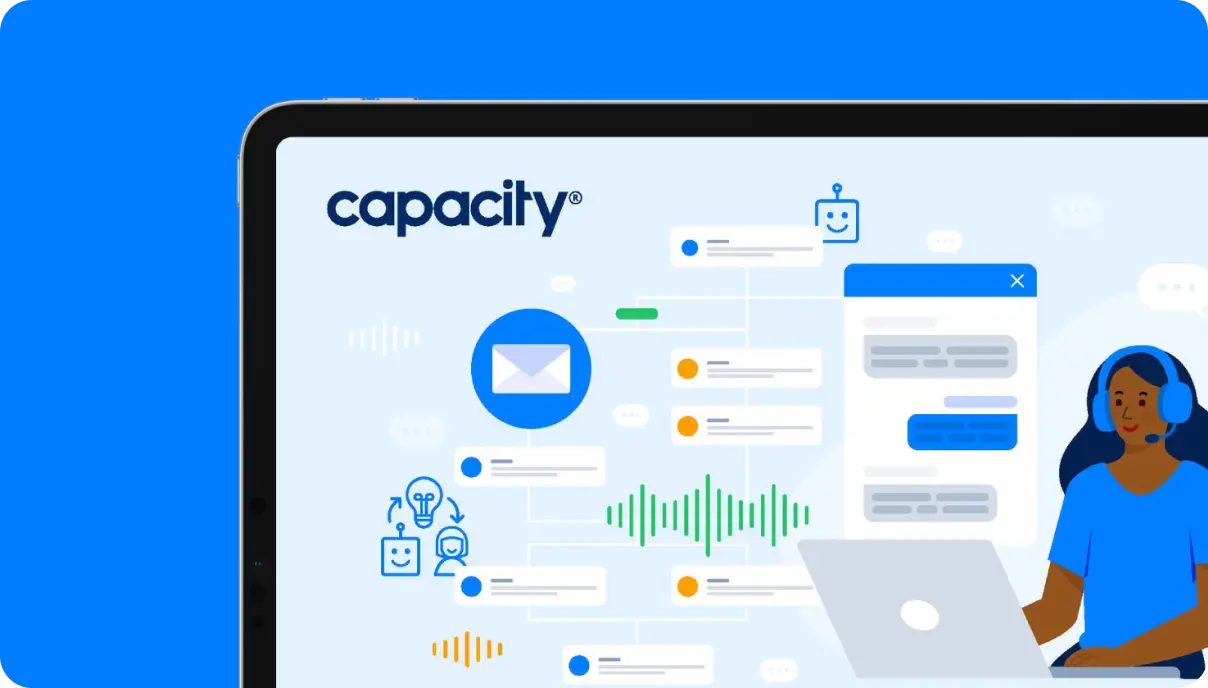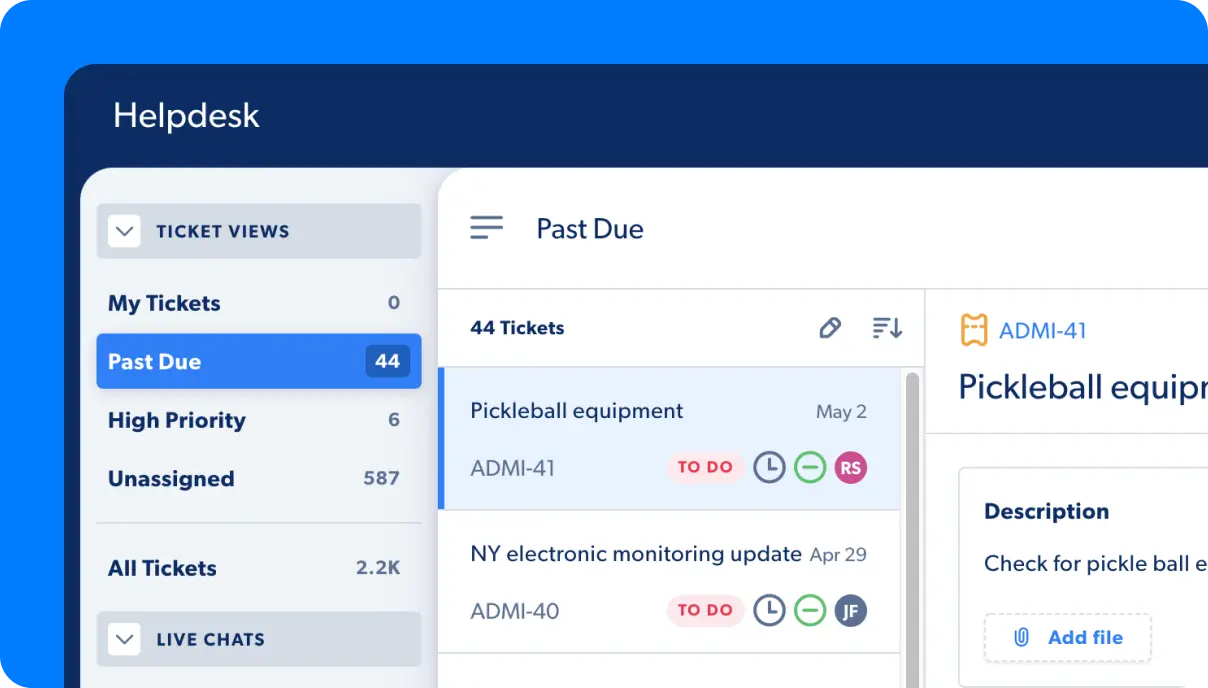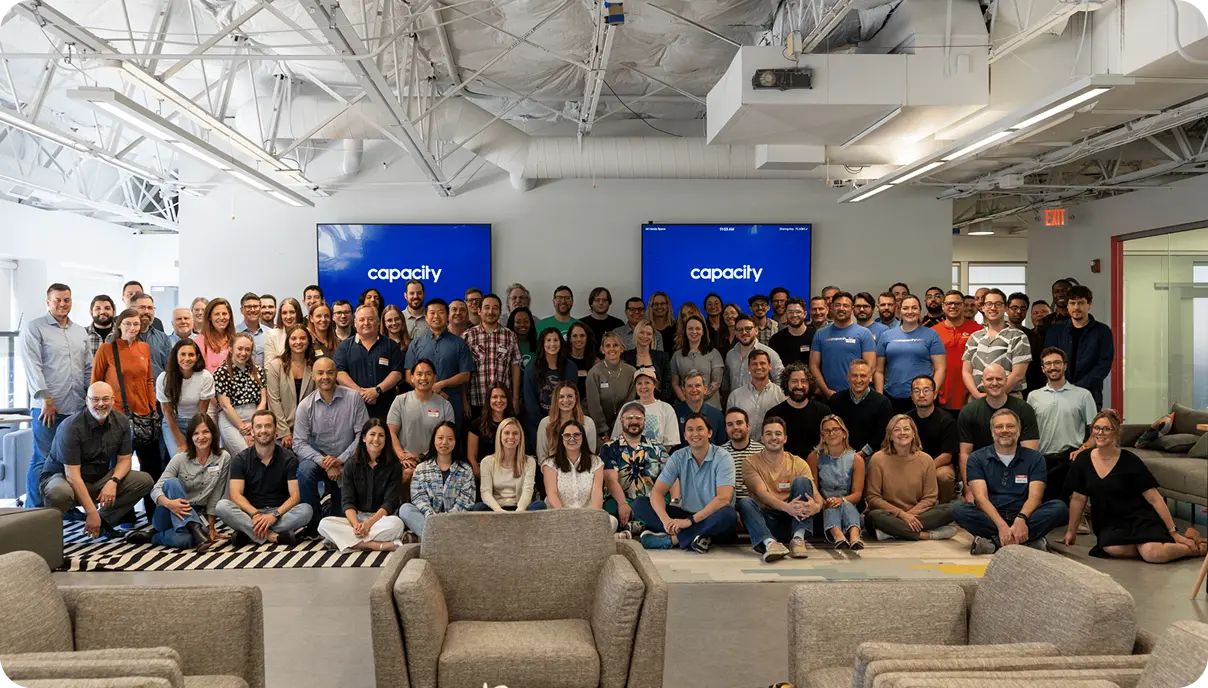If you love using technology to build innovative solutions to business challenges, you’re going to love Capacity’s new podcast.
The Support Automation Show is hosted by Justin Schmidt.
There is a global shift toward automated customer support, and we want to accelerate it by sharing stories about successful automation initiatives.
Each week we feature a leader in the field of customer success. We discuss what their organization is doing to improve customer support and the challenges they face in doing so.
We cover all facets of support infrastructure like building chatbots, writing code, and automating actions based on help desk tickets.
However, more importantly, we delve into the reasons behind introducing support automation. What impact does it have on the people in an organization? How does it affect their jobs, and how does it change the way they work? How does it affect how customers relate to the organization?
We also talk about what is preventing more organizations from introducing support automation tools and the obstacles to overcome.
Explore the episodes we’ve produced so far:
Episode 1 – Stacy Justino, Director of Customer Happiness at Wistia.
Wistia is a video hosting platform designed to help B2B businesses market their videos and podcasts. Stacy Justino, Director of Customer Happiness, leads the support team of just under 20 people.
In this episode, we discuss support automation. For Wistia, support automation is about leveraging the technology and data at their disposal to create a better customer experience. Automating customer support processes that don’t have to be done manually by humans saves time and leaves less room for error. Another advantage is that it allows their support reps to work on more interesting problems rather than answering repetitive questions.
Episode 2 – Jeffrey Breunsbach, Director of Customer Experience at Higher Logic.
Higher Logic is an investment platform that has helped organizations and associations build online communities. They are very focused on driving community engagement to bring peers together to share learnings and discussions. Jeffrey’s role involves bringing customers together, education and training, and scaling its customer success strategy.
In this episode, we discuss how they’re using support automation to make it easier for customers to engage with them and ensure they maximize their team resources.
Episode 3 – Rachel Jennings-Keane, Independent Customer Success Consultant.
Rachel has worked in the customer success space for 5-6 years and is currently on sabbatical after moving to the US.
In this episode, we discuss how artificial intelligence (AI) technology can unlock the full potential of your best people and help your teams do their best work. We also cover how automation can have negative impacts when it’s not implemented well and why companies should incentivize reducing customer churn. Rachel is a firm believer in using excellent customer service to “satisfy the unsatisfied.”
Episode 4 – Justin covers what listeners should expect to learn moving forward.
In this solo episode, Justin Schmidt talks about his incredible experiences on the podcast so far and highlights how customer support technology is simplifying the way customers and employees receive help.
Episode 5 – Craig Soelberg, Senior People Success Manager at Chargebee.
Chargebee offers billing management software for subscription businesses.
In this episode, Justin and Craig talk about Craig’s role in employee engagement and the challenges of being a people success manager for a company with employees spread out all across the globe. They also cover how automation and AI can work together with human resources to improve the employee experience.
Episode 6 – David Apple, Chief Revenue Officer at Zingtree.
Zingtree is a decision tree software tool. Although it can be used for any decision, Zingtree is focusing its attention on customer service, including assistance for agents and knowledge-based self-service solutions for customers.
. For example, SpaceX, a Zingtree customer, kept running into a problem. Their engineers were dealing with hundreds of pages of code, so it was easy to make searching errors or spend hours looking for the right piece. They used Zingtree to create an automated decision tree which is saving thousands of hours.
In this episode, we discuss David’s experience of working in organizations that have scaled quickly. We also cover how great customer support teams drive revenue and the mistake of viewing them as a cost center.
Learn more about Capacity.
This podcast is brought to you by Capacity. Head to capacity.com for all the features and options that make it possible to create an automated support experience, from knowledge base solutions to customer service chatbots and more.











































